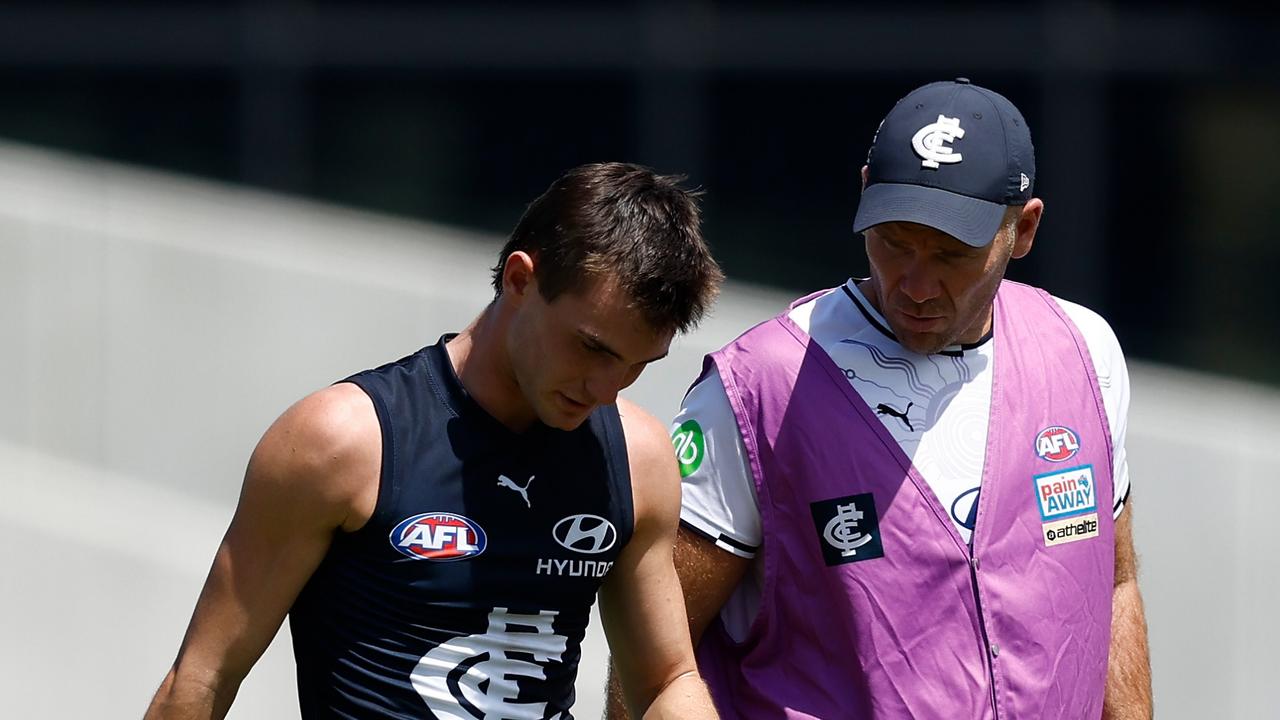Inside the highs and demise of pre-season footy, 20 years on from Carlton’s Wizard Cup win
It’s two decades since Carlton won the Wizard Cup in front of more than 40,000 fans. JOSH BARNES speaks to one of the architects and examines the demise of the AFL’s pre-season competition.
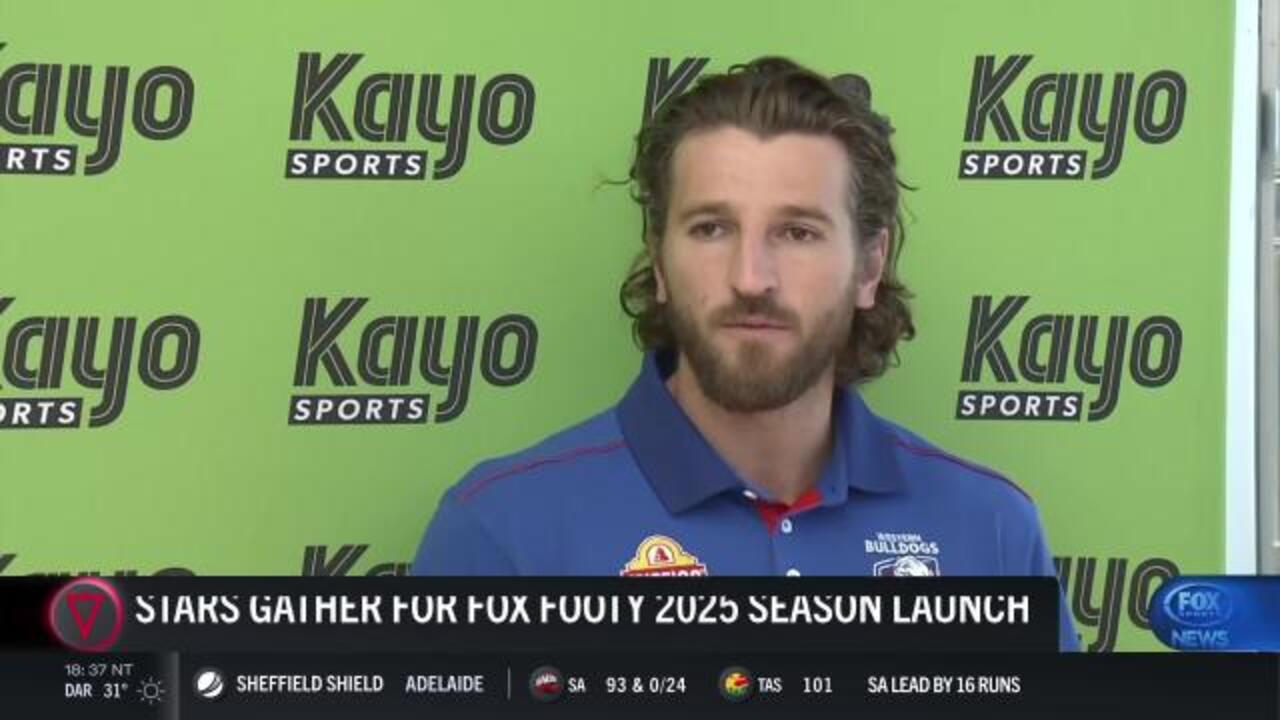
AFL
Don't miss out on the headlines from AFL. Followed categories will be added to My News.
No coach won more AFL pre-season premierships than Denis Pagan.
But a fair indication of the fallen standing of the summer silverware is that the coaching great didn’t know his record when it was presented to him recently.
“I’ll take your word for it, it was such a long time ago,” he said when reminded by this masthead.
Pagan and his long-time adversary Kevin Sheedy tied for the most pre-season title wins with four and it is a record that will likely never be broken, given the demise of the competition.
AFL clubs have already begun what is now termed “match simulation” games, where the teams call each other to pick a time to face off weeks before the season in a match without normal rules.
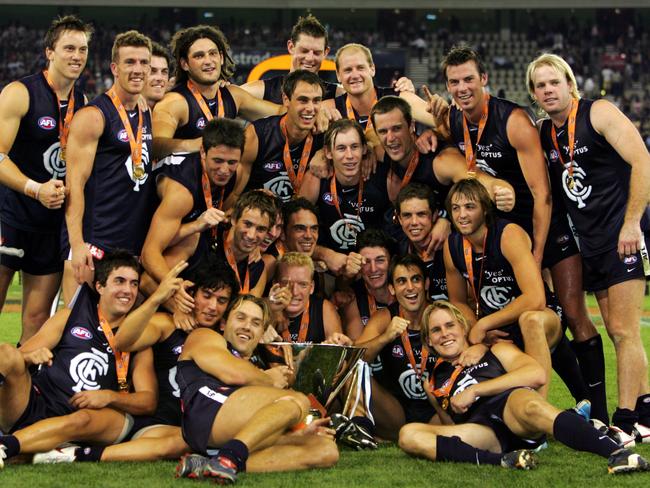
Next will be a single AAMI Community Series match, organised by the AFL, where teams play under conditions that mirror the regular season.
The pre-season grand final, the Michael Tuck Medal for best-on-ground in said game, and the big crowds of fans hungry for footy in February and March are now relics, with the last summer competition staged in 2013.
March will mark 20 years since one of the final high points of the 25-year run of the cups won before the season actually started, and the first signs of the death of summer silverware.
Pagan’s Carlton team won the Wizard Cup that year, with Brendan Fevola’s eight goals securing a 17-point win over West Coast in front of 43,280 people at then Telstra Dome.
The Dome was rocking that summer.
A Friday night game in round 1 of the knockout competition between Collingwood and Richmond drew 33,369 fans and three other matches collected more than 25,000 patrons each.
In the final, Chris Judd was outstanding in the Eagles’ midfield, with the reigning Brownlow medallist grabbing 27 disposals, while Nick Stevens – who skipped his brother’s wedding for the game – and Lance Whitnall starred for the Blues.
But it was really the “Fev” show as the 23-year-old full-forward bagged five majors in the first half on his way to securing the Michael Tuck Medal.
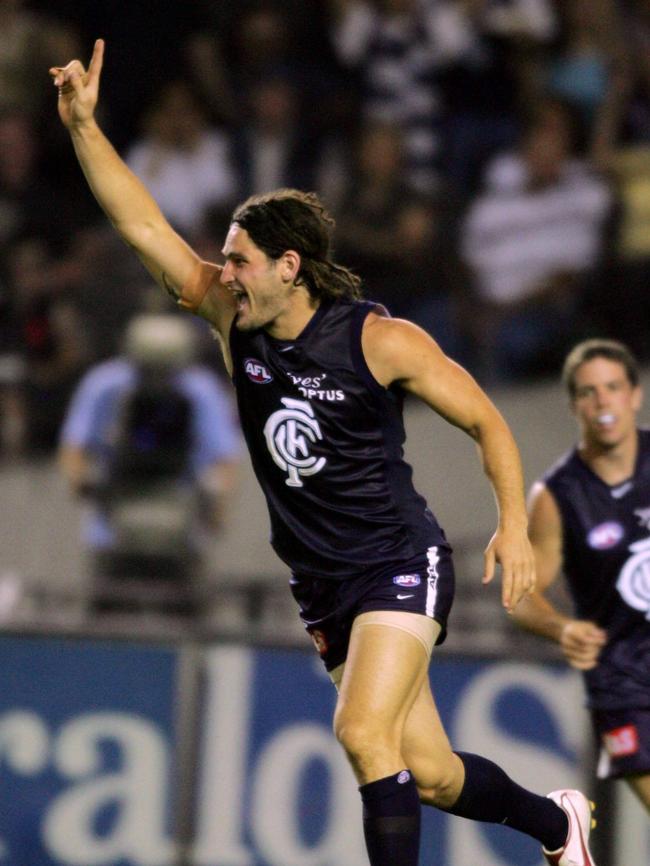
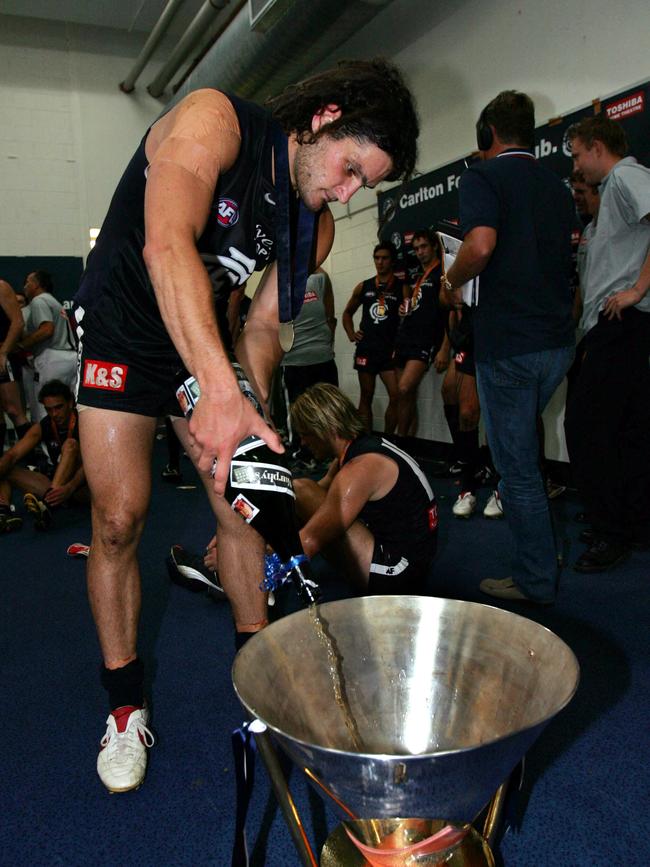
“I used to play with (Tuck’s late son) Shane, so that was a bit of an honour and I really looked up to him,” Fevola said after the match in 2005.
“My little girl (Mia) this morning said to win the medal, so it gave me good luck.”
Pagan would say on the night that “I am sure there are a lot of people out there that don’t rate it but I will debate with anybody that it is the best preparation you can have for home-and-away football”.
The coach, turned real estate agent and horse trainer, stuck to that belief two decades on.
“If it is worthwhile doing, it is worthwhile doing properly,” he said.
“I didn’t care what anybody else as going. I wanted to make sure I was giving our boys the best preparation you could get for when round 1 came around and they were ready to go.
“You can’t improve on God-given natural ability, but you can get them prepared right.”
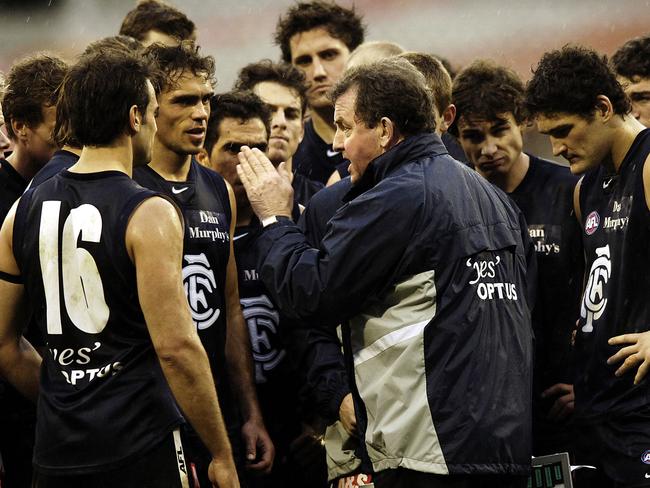
While the Eagles parlayed a Wizard Cup final preparation into a season in which John Worsfold’s side came within five points of the premiership, Pagan’s pre-season premiers collapsed, winning just four games and earning the club’s second wooden spoon.
“Did you have a look at the list and rate the talent against everybody else?,” Pagan said of his 2005 team.
“We might have got a hop or a start on some of the other teams in terms of our fitness because of our summer program, but at the end of the day we didn’t have a lot of talent and it became tougher if you had a few injuries or setbacks within your team.”
Carlton pocketed $220,000 as Wizard Cup winner and a grand final DVD was advertised in the Herald Sun the next day to pre-order.
Two years later, Pagan again won the pre-season comp with Stevens winning the Tuck Medal as 46,094 watched a grand final victory over the Brisbane Lions.
Pagan was sacked from the Blues five months later amid another four-win season.
But the coach stands by going hard in pre-season, having won two summer flags with North Melbourne in 1995 and 1998, when the Roos were regular season premiership contenders.
“I used to always believe – if you played in those pre-season grand finals, and I remember games at Waverley Park where the crowd was queuing up to get in – I would think to myself if a youngster was playing in a game like say Byron Pickett, it is probably worth 12 or 15 home-and-away games, the experience someone gets in those sort of games,” he said.
Fevola’s eight goals was a step on his trajectory towards superstardom.
He won the 2006 and 2009 Coleman medals and famously kick 99 goals in the 2008 season.
“To kick eight goals in a game like that, it certainly didn’t detract from his development,” Pagan said. “It’s a wonderful experience for him.”
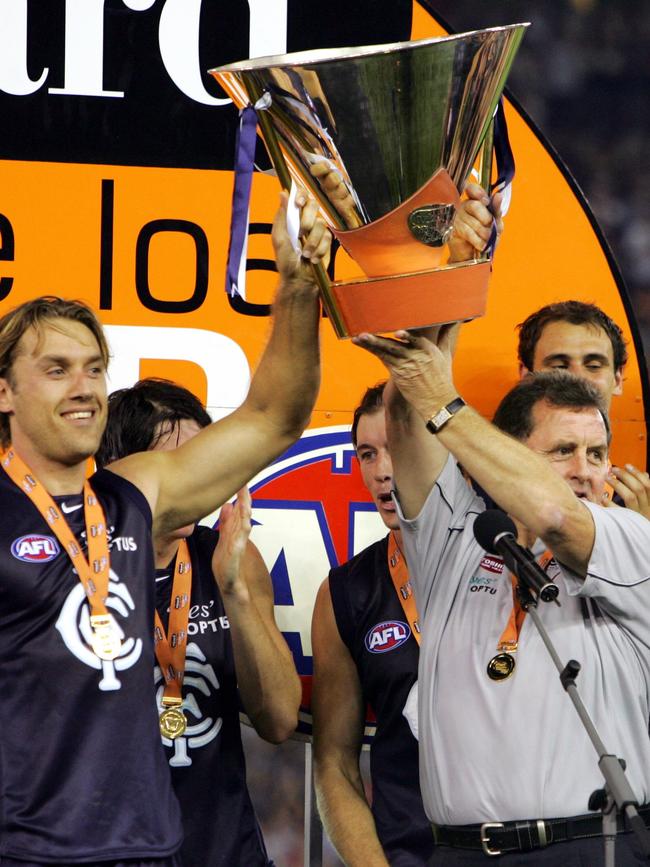
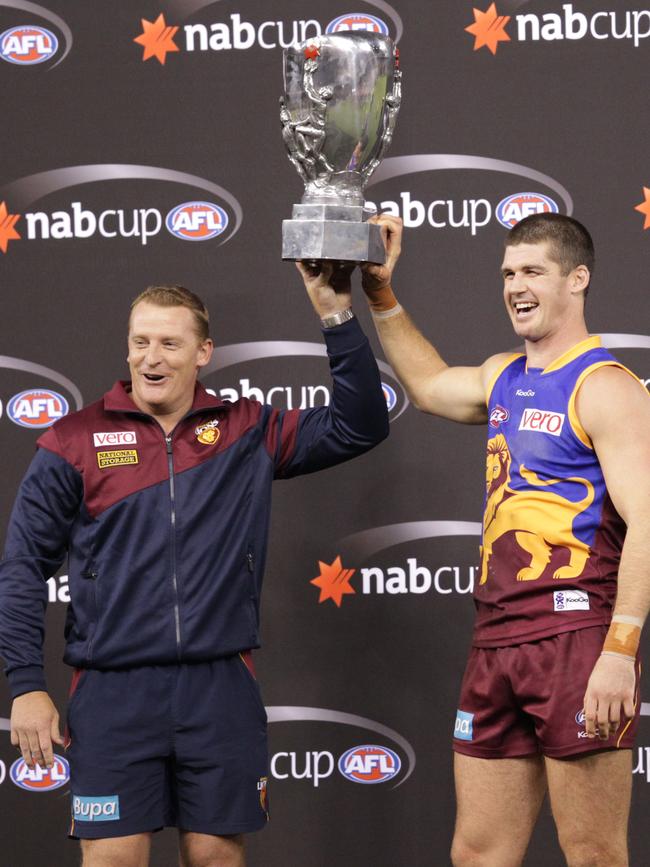
DUCKS, DRAKES AND THE DEATH OF THE CUP
A rumble began just 11 days before the Blues celebrated under the roof in March, 2005.
Then an assistant coach at Collingwood, Guy McKenna said on March 2: “If I had to hop on my soapbox, I’d personally scrap the Wizard Cup.”
As late as 2011, Collingwood and Essendon drew more than 45,000 fans to the renamed NAB Cup final, but the competition was on the way out by then.
“I think everybody was playing ducks and drakes,” Pagan said.
“I look at the bull---t pre-season games and I think to myself, why are you having them?
“That was a real sort of pipe opener to the season, the pre-season competition, it was terrific. It gave you opportunities to blood young kids and to see what they are really like.
“I think they went backwards, the AFL, when they went to whatever they are called now, simulation games. They are dancing-with-your-sister games.”
In 2013, then AFL scheduling boss Simon Lethlean blamed the coaches for not wanting summer silverware to remain.
The match simulation games held now can be varied at a whim, with clubs often pausing the action to play scenarios such as one team trailing by seven points with 90 seconds on the clock.
Players are pulled in and out of contests and deep squads are used.
The community series games are not so easily manipulated.
The AFL believes it has found a good balance in the current scheme and has no immediate plans for change.
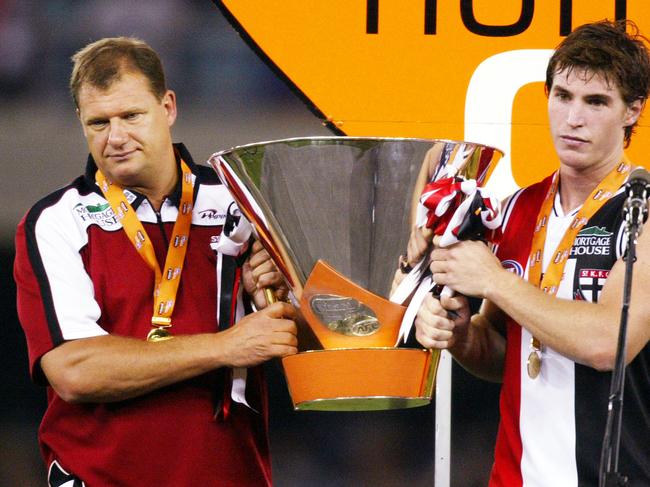
The players themselves largely prefer to play matches than toil away training, but the AFLPA has not pushed for either the return of a summer competition or extra matches against opposition.
Some coaches would scrap practice games all together and begin the season completely fresh.
“Watching pre-season games is just more of an opportunity for your best players to get injured,” one coach said. “If you rolled up to round 1 without practice games that would make the start of the season really interesting.”
The question about injury fears drew a classic Paganism from the Kangaroos’ Team of the Century coach.
“You can get an injury when you shave in the morning,” he quipped.
Others in clubland want more chance to test themselves against opposition, and clubs host more match simulation at pre-season training than ever before.
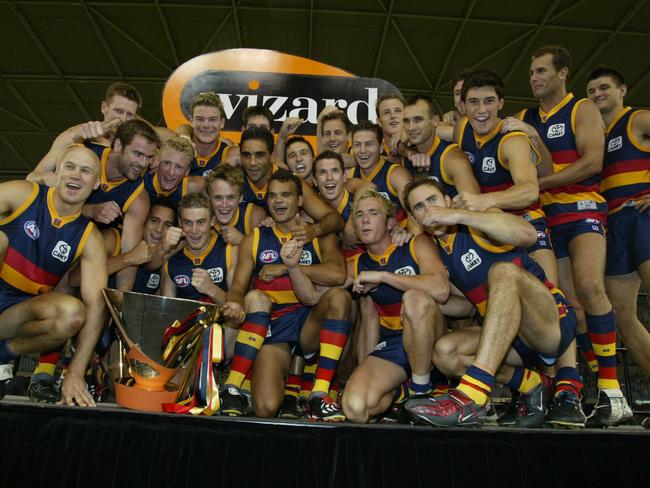
It hasn’t been lost on those in the game that the death of the pre-season competition opened the door for the regular season to creep earlier and earlier.
Carlton won the 2005 Wizard Cup on March 12 and the home-and-away season began on March 24.
The third weekend of the AFL season will be completed on March 23 this year.
The modern culture of only the real thing counting for anything has impacted the loss of summer silverware too, where clubs and fans see round 1 as far more important because it can set up the regular season finals series, rather than a pre-season grand final that only meant some money to the club and good memories for the fans.
But the return of the Indigenous All Stars game and the Perth crowd of 37,865 showed the hunger among lovers of the game for February footy.
Once the clubs and fans moved on from what became a lack of importance in chasing summer silverware, the game moved on too.
“If it is worthwhile doing, it is worthwhile doing properly,” Pagan said.
Originally published as Inside the highs and demise of pre-season footy, 20 years on from Carlton’s Wizard Cup win


